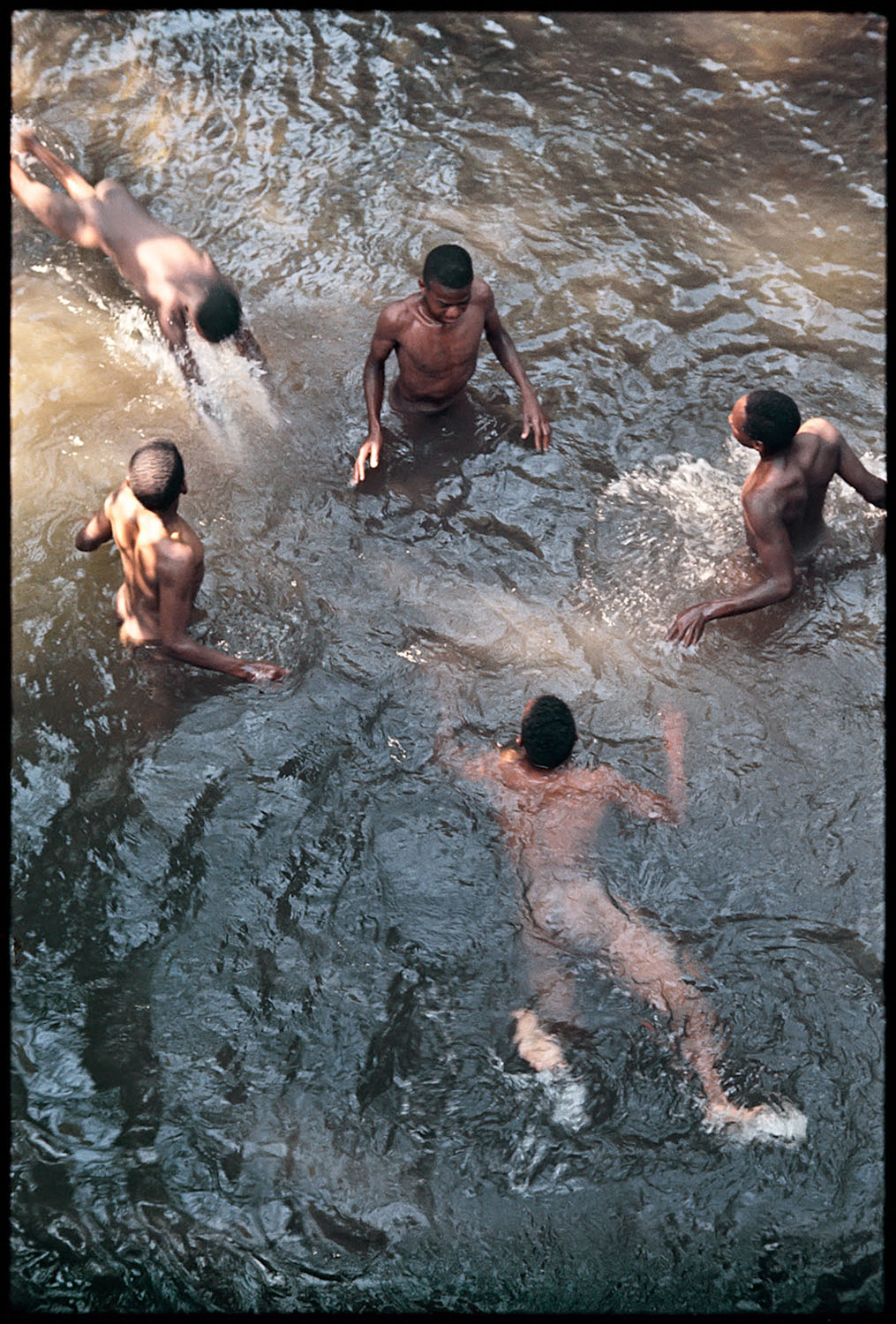Gordon Parks’ luminous photos of Black American life

Gordon Parks (1912–2006) was a singular figure in the 20th century, transcending every boundary erected against Black America to become one of the greatest artists of our times. The self-taught photographer, who barely escaped lynching as a child and ended up homeless as a young teen, used the injustice levelled against him as fuel to chart his own path through the mainstream in order to tell stories of Black America from the inside.
As the first Black photographer working for LIFE magazine, Parks’ photographs of segregation in the South, pictures made in his hometown of Fort Scott, Kansas, scenes of crime in major cities in the 1950s, and documentation of the Civil Rights Movement have become some of the most indelible images of mid-century America.
The new exhibition, Gordon Parks: Half and the Whole, offers an intimate portrait of the complex realities for Black Americans between 1942 and the 1970s. The exhibition opens with an essay by New Yorker journalist Jelani Cobb, drawing parallels between the lives of George Floyd and Gordon Parks, both of whom moved to Minneapolis, Minnesota, in search of a better life.

Untitled, New York, 1963

Department Store, Mobile, Alabama, 1956
Parks, the youngest child of 15, moved to the city in 1928 after his mother’s death; Floyd arrived nearly a century later, in 2014, to rebuild his life after serving time – only to be killed by Police Officer Derek Chauvin in a moment captured on video that launched the biggest Civil Rights protests in the history of the world.
“The great tragedy and beauty of Gordon Parks is that his work continues to resonate so much today: he captured the zeitgeist of his time, including many issues we still face,” says gallerist Jack Shainman.
The parallels between the past and the present are evident throughout much of Parks’ work, though perhaps not quite so clearly stated as in a 1963 photograph where a Black man holds a protest sign bearing the words, “WE ARE LIVING IN A POLICE STATE.”
Despite the trauma Black people have endured in the United States, Parks understood the story of Black America could not be told unless one embraced tender moments of beauty, peace, and bliss as evidence of the triumph of spirit over the forces of destruction.

Untitled, Mobile, Alabama, 1956

Untitled (Malcolm X) Harlem, New York, 1963
“Always, there is a glimpse of the joy that perseveres even in the most hostile circumstances, the glint of light peering through foreboding clouds,” Cobb writes in his essay.
Parks understood survival required more than just struggle: it necessitates the pleasures of family, friends, and being one with nature itself. In his photographs made in Shady Grove, Alabama, in 1956, Parks offers tender moments of daily life; poignant mediations on the quiet dignity human life.
“The images in this exhibition show more than just half the story, encompassing not just the struggles but the everyday lives of his subjects,” Shainman says. “In his photographs, we see injustices, but also moments of play, love, learning, and pleasure. Gordon’s keen eye captured the whole story, which is evident throughout our show.”

Untitled, Harlem, New York, 1963

Untitled, ca. 1946

Watering Hole, Fort Scott, Kansas, 1963

Outside Looking In, Mobile, Alabama, 1956

Untitled, Chicago, Illinois, 1957

Untitled, Harlem, New York, 1963
Gordon Parks: Half and the Whole is on view at Jack Shainman Gallery in New York through February 20, 2021.
Follow Miss Rosen on Twitter.
Enjoyed this article? Like Huck on Facebook or follow us on Twitter.
Latest on Huck

Clubbing is good for your health, according to neuroscientists
We Become One — A new documentary explores the positive effects that dance music and shared musical experiences can have on the human brain.
Written by: Zahra Onsori

In England’s rural north, skateboarding is femme
Zine scene — A new project from visual artist Juliet Klottrup, ‘Skate Like a Lass’, spotlights the FLINTA+ collectives who are redefining what it means to be a skater.
Written by: Zahra Onsori

Donald Trump says that “everything is computer” – does he have a point?
Huck’s March dispatch — As AI creeps increasingly into our daily lives and our attention spans are lost to social media content, newsletter columnist Emma Garland unpicks the US President’s eyebrow-raising turn of phrase at a White House car show.
Written by: Emma Garland

How the ’70s radicalised the landscape of photography
The ’70s Lens — Half a century ago, visionary photographers including Nan Goldin, Joel Meyerowitz and Larry Sultan pushed the envelope of what was possible in image-making, blurring the boundaries between high and low art. A new exhibition revisits the era.
Written by: Miss Rosen

The inner-city riding club serving Newcastle’s youth
Stepney Western — Harry Lawson’s new experimental documentary sets up a Western film in the English North East, by focusing on a stables that also functions as a charity for disadvantaged young people.
Written by: Isaac Muk

The British intimacy of ‘the afters’
Not Going Home — In 1998, photographer Mischa Haller travelled to nightclubs just as their doors were shutting and dancers streamed out onto the streets, capturing the country’s partying youth in the early morning haze.
Written by: Ella Glossop